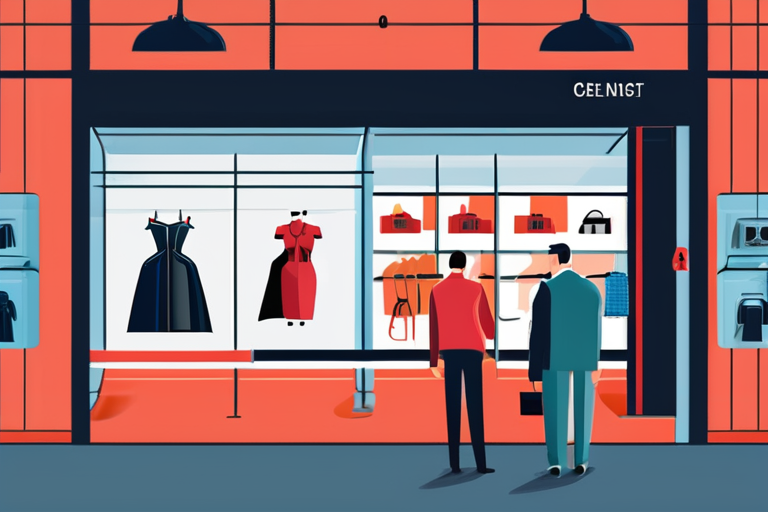France is poised to take a drastic step against Shein, the Chinese fast-fashion giant, after months of growing concerns over its presence in the European market. The company's decision to open its first physical location in Paris has been met with widespread criticism, and the French government is now considering a ban on the e-commerce platform.
According to recent reports, Shein's website has been found to be hosting third-party sellers offering child-like sex dolls and weapons, sparking outrage among French authorities. The discovery has led to a renewed push for stricter regulations on e-commerce platforms, with some lawmakers calling for a complete ban on Shein's operations in France.
Financial details suggest that Shein's rapid expansion in Europe has been fueled by its impressive financial performance. The company reported revenues of $10.9 billion in 2022, a staggering 50% increase from the previous year. Shein's e-commerce platform has been particularly successful, with over 200 million active users worldwide, including 30 million in Europe. The company's valuation has soared to over $60 billion, making it one of the most valuable private companies in the world.
However, Shein's growth has also raised concerns about its impact on the European fashion industry. The company's fast-fashion business model, which relies on rapid production and low prices, has been criticized for its environmental and social implications. Shein's presence in France has also disrupted the local market, with many small businesses struggling to compete with the e-commerce giant's low prices and vast product offerings.
Shein's business model is built on its ability to offer trendy and affordable clothing to a younger demographic. The company's e-commerce platform features over 1 million products, with new items added daily. Shein's supply chain is complex, with the company working with thousands of suppliers in China and other countries. The company's logistics and shipping operations are also highly efficient, allowing it to deliver products to customers quickly and at a low cost.
The French government's consideration of a ban on Shein's operations in the country has significant implications for the company's future in Europe. A ban would not only affect Shein's revenue but also its brand reputation and market share. Shein's competitors, such as Boohoo and Zara, have already begun to capitalize on the company's struggles, launching their own e-commerce platforms and marketing campaigns to attract customers.
In conclusion, Shein's decision to open its first physical location in Paris has sparked a backlash from French authorities, who are now considering a ban on the company's operations in the country. While Shein's financial performance has been impressive, its business model has raised concerns about its impact on the European fashion industry. The company's future in Europe remains uncertain, and its ability to adapt to changing regulations and market conditions will be crucial to its success.



























Share & Engage Share
Share this article